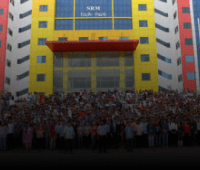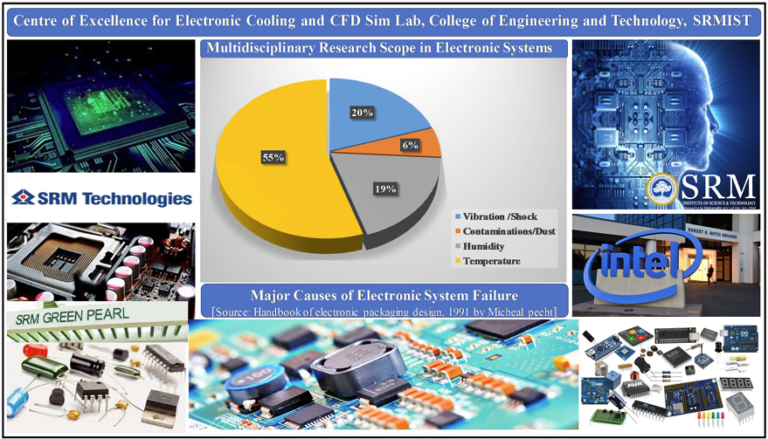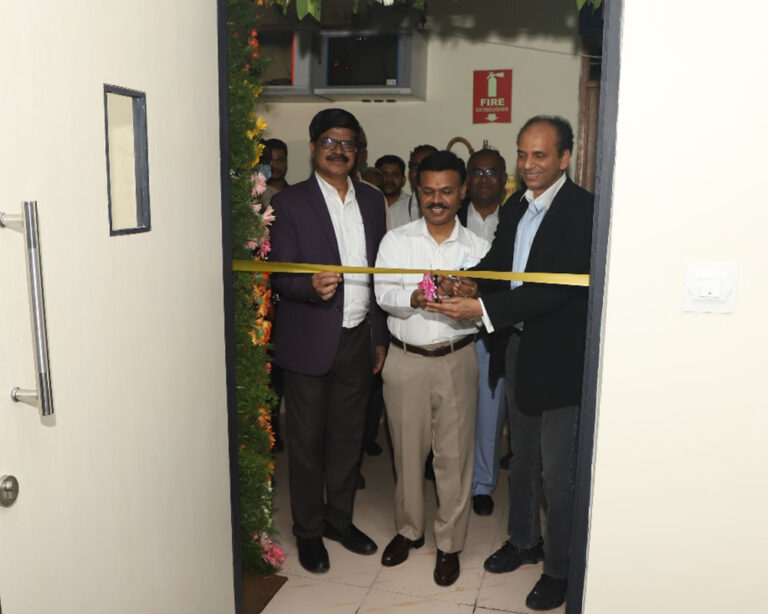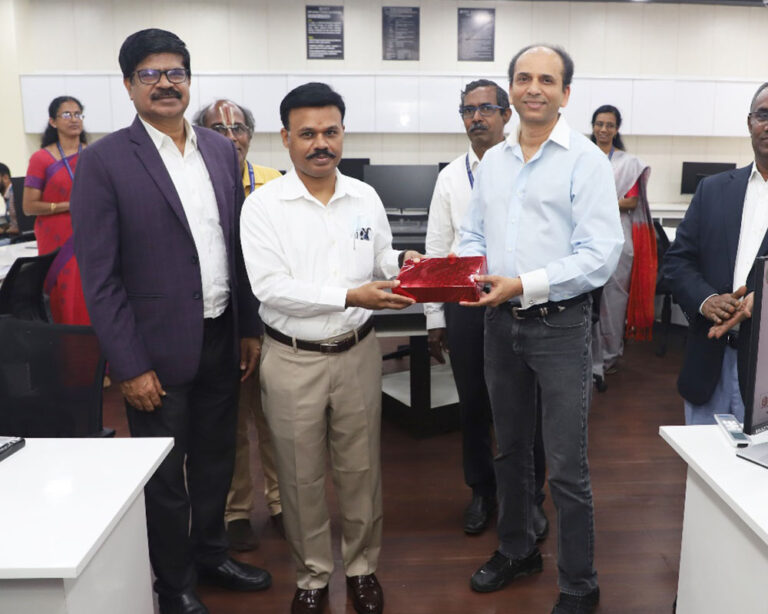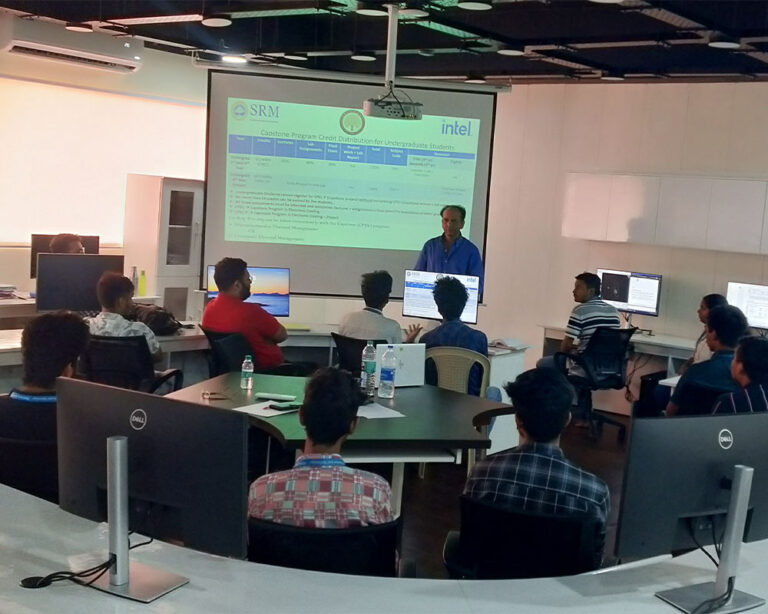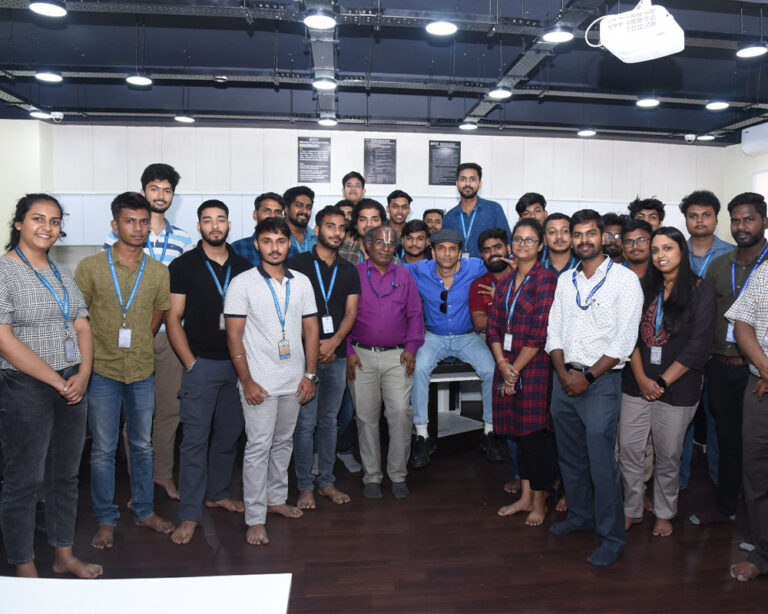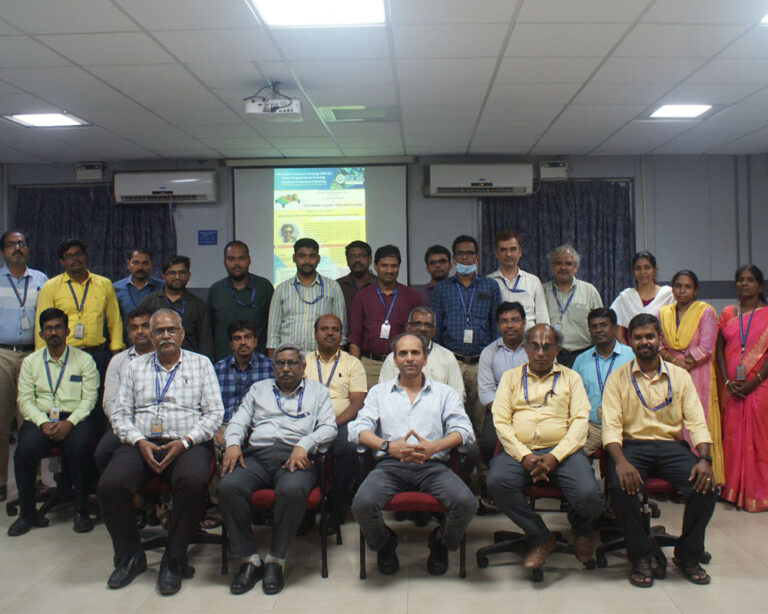
Dr. Prabhakar Subrahmanyam
Senior Staff Scientist / Distinguished Engineer,
Dell Technologies, CA, U.S.A.
Visiting Professor, SRMIST
International Advisor
Dr. Prabhakar Subrahmanyam is a Senior Staff Scientist / Distinguished Engineer at Dell Technologies, where he leads advancements in server and rack-level thermal management and AI-and ML-driven thermal optimization for data center ecosystems. Previously, he served as a Staff Scientist at Intel, focusing on thermal research and cooling techniques for microprocessors and GPUs – spanning client devices, desktops, Xeon servers, HPC, and graphics ecosystems. As Chief Thermal Architect for Intel’s advanced node processors, he played a pivotal role in delivering the first exascale computing chip, Ponte Vecchio, for Argonne National Lab and the private sector.
He spearheaded research and innovation in cooling and packaging, driving advancements in photolithography processes for Intel’s processors and GPU roadmap. Dr. Prabhakar holds a degree in Aerospace Engineering from Stanford University, specializing in Hypersonic Aerothermodynamics & atmospheric entry heat transfer for planetary entry probes and vehicles. With over 65 publications and over 50 patents, and several pending at the patent office, he is a pioneering technologist renowned for his expertise in jet impingement cooling techniques for high-power density electronics and innovations in heat exchangers. At Intel Labs, he invented, developed, and deployed numerous innovative cooling solutions that shaped the industry. Prior to Intel, he worked at NASA Ames Research Center on thermal protection systems heat shields for planetary entry probes.
Dr. Prabhakar has delivered over 150 invited talks across universities and industries in several countries. He was instrumental in starting the Center of Excellence for Electronic Cooling lab at SRMIST and SRMAP. He is an active contributor to technical conferences, serving as a session chair, track chair and reviewer for IEEE Transactions on Components, Packaging, and Manufacturing Technology, as well as ASME Transactions on the Journal of Electronic Packaging. His expertise extends from semiconductor thermal management to embedded systems, thermal management in data centers, and emerging technologies such as quantum computing, where advanced cooling solutions are essential for the next-generation computing infrastructure.
Courses Offered
These research areas are critical for improving electronic device performance, reliability, and longevity while addressing the challenges associated with heat management.
- Nanomaterials for Thermal Management: Exploring nanomaterials like graphene and carbon nanotubes to enhance heat dissipation in electronic components.
- Microfluidic Cooling: Investigating the design and implementation of microchannels and microfluidic systems for efficient cooling of electronic devices.
- Lattice Structures: Research in advanced heat sinks.
- Thermal Modeling and Simulation: Developing accurate and efficient computational models for predicting and optimizing temperature distributions in electronic systems.
- Two-Phase Cooling Systems: To manage heat in high-performance electronics, two-phase cooling methods, such as phase-change materials and heat pipes.
- Thermal Management in Power Electronics: Investigating techniques to dissipate heat generated in power electronic devices.
Infrastructure
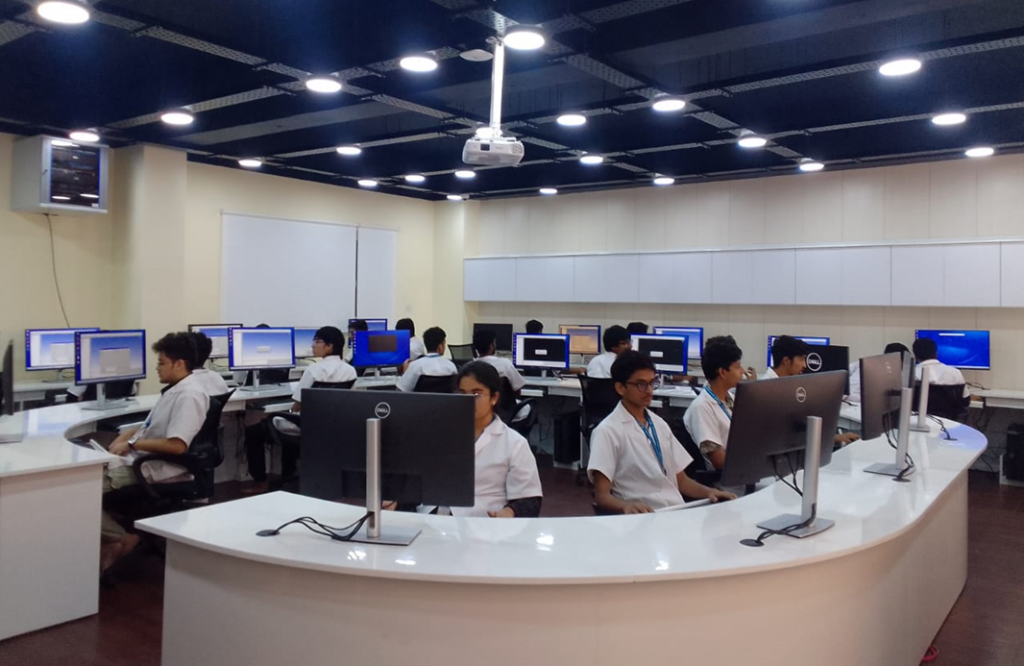
Hardware
- Workstation- 30 Nos (128GB RAM, Dual Processor, 8 GB Graphics card, built-in WiFi, 27-inch full H.D Monitor)
Software
- Ansys Workbench
- COMSOL Multiphysics
- P.T.C. Creo
- Autodesk Fusion 360
- nTopology


